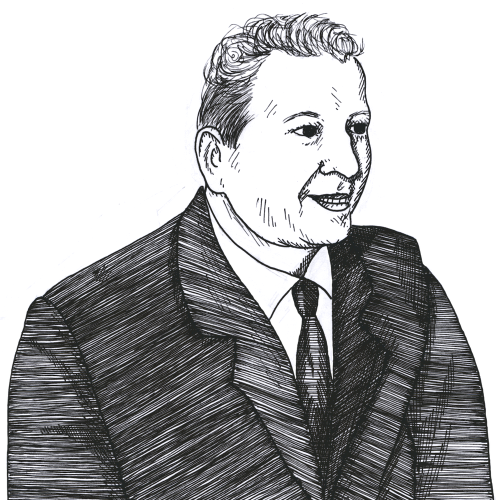Liberty Matters
Western Political Traditions and Polycentric Localism
 In his piece "Fetishizing Consent," Peter T. Leeson refers to the Western heritage and to two different ways to defend it: adopting a consent-centered perspective or, on the contrary, a wealth-centered one. However, it is not evident whether and why classical liberals should defend the legal and political orders of Western societies. It is true that European history generated individual rights, government limited, pluralism, and toleration, but at the same time, it elaborated absolutism, nationalism, imperialism, and totalitarianism. John Locke and Thomas Jefferson, Jean-Jacques Rousseau and Napoleon Bonaparte, Karl Marx and Adolf Hitler: all these people have played a crucial role in our common past. In other words, individual freedom and omnipotent state are both notions rooted in European heritage. For this reason, to give a correct evaluation, we probably need to "dehomogenize" such a complex and diversified tradition.
In his piece "Fetishizing Consent," Peter T. Leeson refers to the Western heritage and to two different ways to defend it: adopting a consent-centered perspective or, on the contrary, a wealth-centered one. However, it is not evident whether and why classical liberals should defend the legal and political orders of Western societies. It is true that European history generated individual rights, government limited, pluralism, and toleration, but at the same time, it elaborated absolutism, nationalism, imperialism, and totalitarianism. John Locke and Thomas Jefferson, Jean-Jacques Rousseau and Napoleon Bonaparte, Karl Marx and Adolf Hitler: all these people have played a crucial role in our common past. In other words, individual freedom and omnipotent state are both notions rooted in European heritage. For this reason, to give a correct evaluation, we probably need to "dehomogenize" such a complex and diversified tradition.From a political point of view, one way to understand our past consists in distinguishing an institutional order focused on the modern sovereign state (as it was built in France and theoretically elaborated by Jean Bodin, Thomas Hobbes, and others) from a tradition more oriented to respecting self-governing communities in order to safeguard the autonomy of civil society (with Johannes Althusius its main theorist).[48] The independent medieval cities of Flanders and Northern Italy, the United Provinces, the Hanseatic League, the Swiss Confederation, and the American federation cannot be understood if we don't see this cleavage between two different ideas of West and if we don't realize that the tradition of the modern state is far from the "dissenting" line. In the second political vision, consent was usually the fundamental criterion because orders based on contracts were adopted in order to defend the dignity of human beings.
Even if he was a strong opponent of any state intervention, in his writings Bruno Leoni didn't show a preference for localism and federalism. However, his analysis of the origins of law can help us defend this important feature of Western tradition: the link between individual freedom and local self-government.
In a tiny community it is easier for people to share the same claims. In other words, a small political community is more homogenous, and less heterogeneity drives us to a society where only a few people are forced to submit to a "common opinion" that conflicts with their wills. For this reason, Leoni's theory about the nature of law -- as the outcome of individuals' claiming certain behaviors from others -- can help us understand the advantages of small jurisdictions. Moreover, if your interests and values are not in tune with the rules of the tiny jurisdiction where you live, the cost of exit is low: you can benefit from a "quasi-market" in protection services.
So a localist perspective can find good arguments in Hayek's idea that "knowledge is essentially dispersed, and cannot possibly be gathered together and conveyed to an authority charged with the task of deliberately creating order," [49] and the proposal of institutional competition can be strengthened by Leoni's idea that law emerges from the exchange of claims and produces less dissatisfaction when the different claims are similar and compatible.
Endnotes
[48.] As Boudewijn Bouckaert remarks (also referring to the important book by Hendryk Spruyt), these institutional orders were destroyed when the modern state triumphed, that is, when the sovereign state established itself as the only possible solution to the problem of political order. See for example, Johannes Althusius, Politica. An Abridged Translation of Politics Methodically Set Forth and Illustrated with Sacred and Profane Examples, ed. and Trans. Frederick S. Carney. Foreword by Daniel J. Elazar (Indianapolis: 1995 Liberty Fund). </titles/692>.
[49.] Friedrich A. von Hayek, The Fatal Conceit: The Errors of Socialism (London: Routledge, 2013 [1988]), p. 77.
Copyright and Fair Use Statement
“Liberty Matters” is the copyright of Liberty Fund, Inc. This material is put on line to further the educational goals of Liberty Fund, Inc. These essays and responses may be quoted and otherwise used under “fair use” provisions for educational and academic purposes. To reprint these essays in course booklets requires the prior permission of Liberty Fund, Inc. Please contact oll@libertyfund.org if you have any questions.